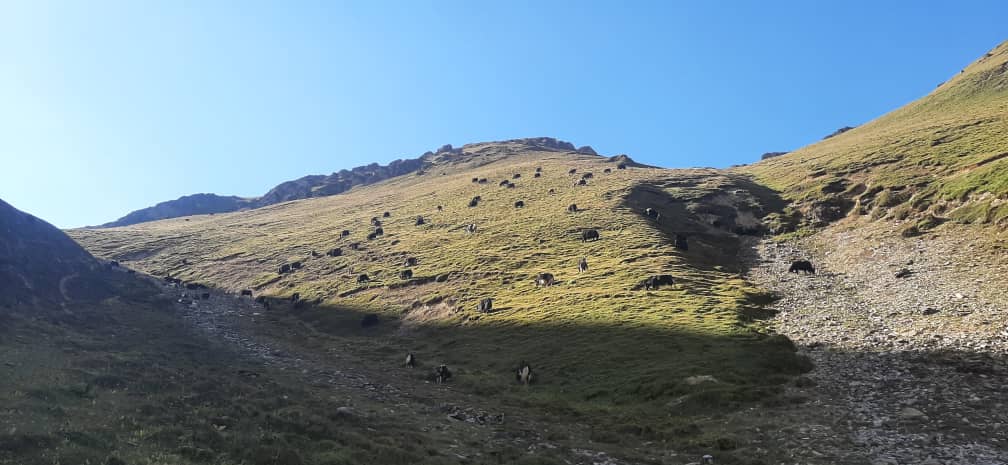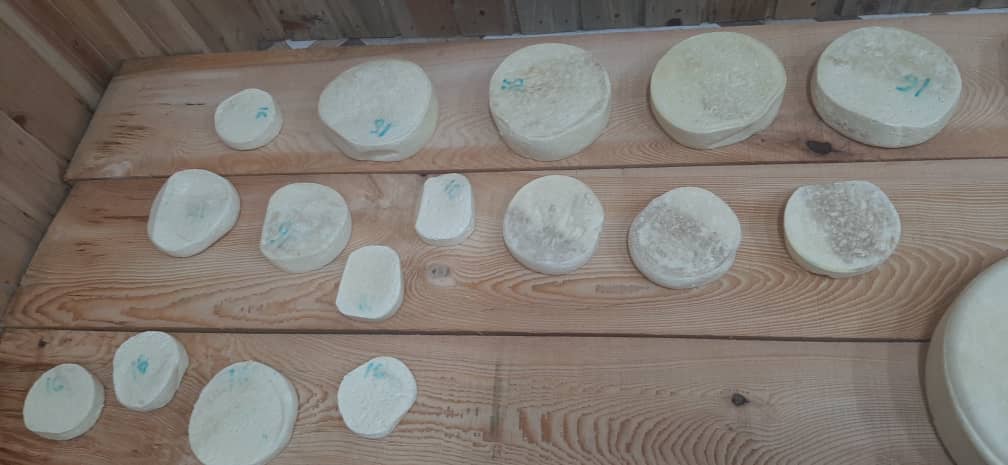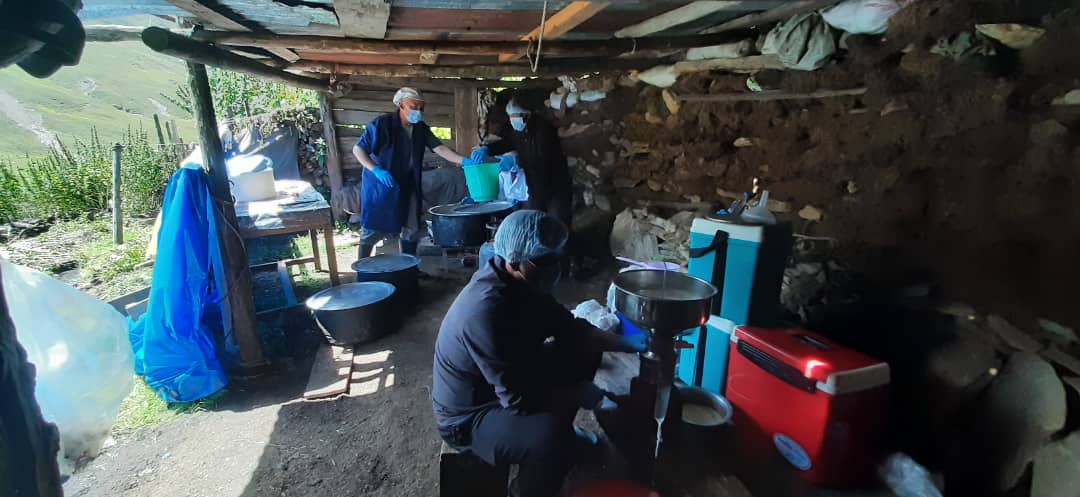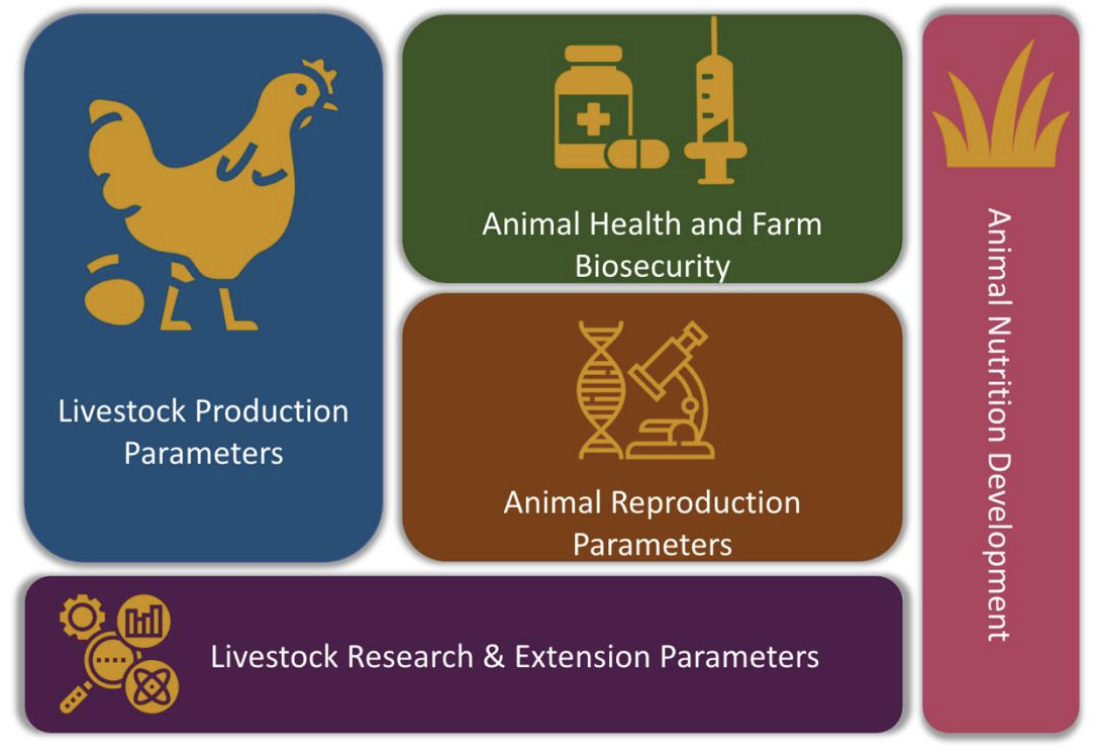𝐒𝐞𝐩𝐭𝐞𝐦𝐛𝐞𝐫 𝟐𝟖, 𝟐𝟎𝟐𝟑: From14-16 September, 2023, a Training of Trainers (TOT) program was conducted in Nubri Chiwog, Tshento Geog, under Paro Dzongkhag. This program was aimed to ensure continuous and sustainable production of high-end niche yak products, specifically Yak cheese (Tomme and Gumdel). The initiative was led by technical resource persons from National Cattle Breeding Center (NCBC), National Highland Development Centre, Wangdue, and Paro Dzongkhag Livestock Sector.
𝐁𝐚𝐜𝐤𝐠𝐫𝐨𝐮𝐧𝐝
Nubri village, situated in Tshento Gewog, Paro Dzongkhag, is home to 16 yak herders and hosts approximately 2,230 yaks, w including around 1,500 milch yaks. These yaks thrive at an elevation ranging from 4000 to 5000 meters above sea level. During the peak production season, the village generates an estimated 1,000 liters of milk daily. Given the proximity of summer herds, which are within a 1-4 hour walking distance to access yak milk, the village has the potential to establish a milk processing unit in the future.

Nubri village plays a significant role as a water source for the lower valleys and is rich in biodiversity, glacier lakes, wildlife, and mountain cultures. It is home to medicinal plants and other high-value resources, such as incense and unique bird species. The main village center is Leyna, where official gatherings occur, while other households are spread across Shamuna, Khagona, Ongdo, Gaytsha, Tsipthnag, and Dhuli. The primary sources of income for the residents are yak farming, horse-based pottering, and the harvesting of cordyceps. Nubri shares its border with China in the North East and is in close proximity to Phari, Tibet. Herders migrate to various highland locations for grazing during different seasons, that includs Sakula, Bjidula, Chimkarmo, Mulungla, Suteyla, Nabula, Thora, Shinglula, Telmola, Yarla, and Chungla. Peak milk production occurs from the end of June to the end of October. All household work is evenly distributed among the herders, and some in Nubri possess the skill of weaving bja and other yak hair products.
𝐘𝐚𝐤 𝐜𝐡𝐞𝐞𝐬𝐞 𝐩𝐫𝐨𝐝𝐮𝐜𝐭𝐢𝐨𝐧
The introduction of Yak Tomme and Ghumdel cheese processing in Nubri by the Department of Livestock aims to train young yak herders and establish sustainable marketing linkages for income generation. On average, 60-75 liters of yak milk were processed daily, resulting in a total production of 18 kilograms of Ghumdel and 48 kilograms of Yak Tomme cheese. This year, the cheese produced will be showcased at the upcoming Royal Highland Festival in Laya and Tshongrig Gatoen in Thimphu. Additionally, tastings will be conducted in collaboration with UNDP for high-end hotels in Thimphu.

𝐂𝐡𝐚𝐥𝐥𝐞𝐧𝐠𝐞𝐬 𝐚𝐧𝐝 𝐑𝐞𝐜𝐨𝐦𝐦𝐞𝐧𝐝𝐚𝐭𝐢𝐨𝐧𝐬
Despite the success of the program, several challenges were encountered during the cheese processing phase including a lack of cheese processing equipment and suitable storage facilities. The harsh climatic conditions also posed difficulties in transporting milk to the processing house, and there remains a need to raise awareness among herders regarding cheese processing. Furthermore, issues persist in cheese storage and transportation.
To address these challenges, several steps can be taken, including the construction of a small milk processing unit in Leyna, Nubri, could centralize milk production, making it more efficient. This would not only benefit cheese production but also open avenues for processing and marketing other high-end yak products. Establishing a sales counter and storage room at Shana Road would enhance marketing efforts. There is also a strong potential for Yak Tomme and Gumdel cheese to be recognized as GI (Geographical Indication) products, creating significant opportunities for herders. As such, the installation of three-phase electricity for the milk processing unit or alternative energy sources, such as solar power, is recommended.
This program received support from UNDP JSB, and was coordinated by LRED (NHDC) under Department of Livestock. The Bhutan Yak Federation, with the support from UNDP and other relevant agencies will continue to produce and market these niche yak products.
𝐑𝐞𝐩𝐨𝐫𝐭𝐞𝐝 𝐛𝐲:
Mr. Kinley Rinchen
Dy. Chief Livestock Production Officer
Department of Livestock
![]()





